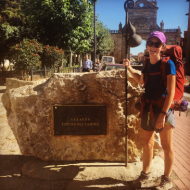H for History
H4H #27: Bridget Chivers-Keneally
After walking the historic Christian pilgrimage Camino de Santiago in Spain, Bridget Chivers-Keneally (Class of 2009) discovered a way to follow her heart while serving the dispossessed.
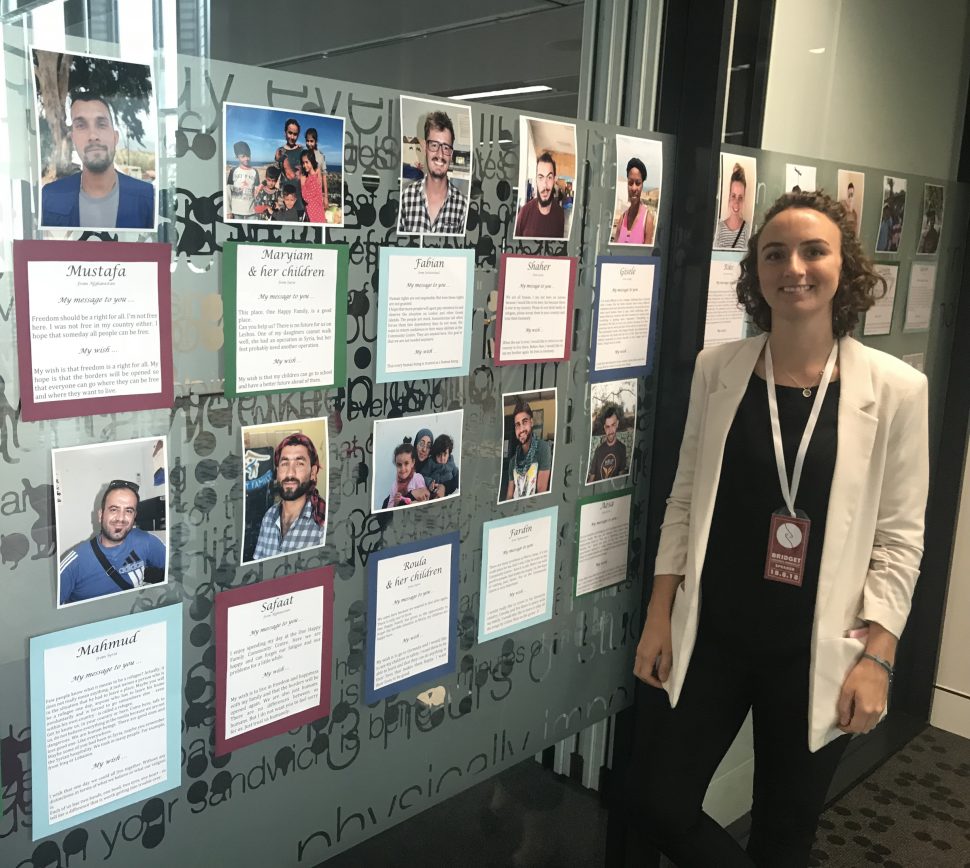
“As challenging as it was, it was amazing to witness daily, the resilience of the human spirit. That is something I will never forget.”
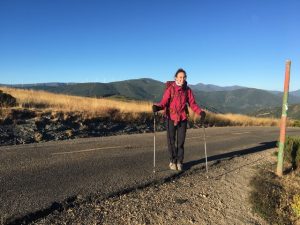 After leaving Radford College in 2009, Bridget Chivers-Keneally travelled through Europe and South-East Asia, completing a Bachelor of Nursing in 2013 through the University of Canberra and La Trobe University. This was followed by her working in a Royal Melbourne Hospital ward for two years, with placements in reconstructive plastics and trauma nursing. The latter was to have a profound effect on her life trajectory.
After leaving Radford College in 2009, Bridget Chivers-Keneally travelled through Europe and South-East Asia, completing a Bachelor of Nursing in 2013 through the University of Canberra and La Trobe University. This was followed by her working in a Royal Melbourne Hospital ward for two years, with placements in reconstructive plastics and trauma nursing. The latter was to have a profound effect on her life trajectory.
Ever the adventurer and often filled with a desire to leave comfort zones, Bridget took to travel once more and bought a one-way ticket to Europe, where among other things, she found herself walking the Camino in Spain.
“After some events in my personal life, I bit the bullet, bought a one-way ticket, resigned from work and gave myself time to work through what I really wanted to,” explains Bridget. “So that’s how I ended up walking the Camino de Santiago de Compostela. It’s an 800km walk across the north of Spain. Nothing better than walking that distance to clear your mind. I just loved the simplicity of just having one purpose and that was to get up and walk each morning. I also loved that you had no idea where you would end up each night and had to trust it would all work out. And, it always did.”
“The Camino really taught me to live in the now and trust things will work out. It also pushed me out of my comfort zone and I was forced to trust myself and my decisions.”
This new mind-set saw her travelling around Europe and Southern Africa for eight months before she landed on the Greek Island of Lesvos in mid-2017. The island has in recent times become a temporary European refuge for thousands of displaced people from wars and crises in the Middle East and Northern Africa, many having endured dangerous sea travel from nearby countries such as Turkey.
It was on Lesvos, that Bridget discovered and began volunteering for the One Happy Family Community Centre. As Bridget explains, “OHF works to give some dignity and self-determination back to those trapped in transit … Together with people from different nations, volunteers, asylum seekers and refugees; it has become a community. In this place, there is no race, no borders. Religion and nationality does not matter here.”
Echoing the service philosophy shared by many Radford students from her RAS days, Bridget points put that “The community centre is not built and run for the people, but with them. The people from the camps often live in total dependency on governmental or NGO aid. Most of them do not wish this. They want to help themselves. They want to be self-determined not determined by others.”
“The majority of volunteers are refugees themselves, with only a handful of ‘European’ volunteers,” she continues to explain. “There is a kitchen that serves 800 people per day, a cafe, a small shop, a barber salon, library, tailor, garden, gym, playground, a safe women’s space, and a school. I had a few roles within OHF. My main one was of health promotion within the centre. This included increasing accessibility for refugees and asylum seekers to receive the correct medical-legal information. This eventuated into how I specifically got into nursing with Médecins Sans Frontières in Greece.”
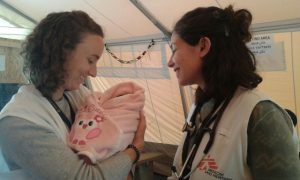
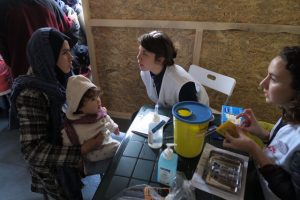
At Médecins Sans Frontières, Bridget delivered medical and mental health care to victims of torture and sexual violence. “My role specifically was a mental health nurse, and I worked in the most incredible multi-disciplinary team. As challenging as it was, it was amazing to witness daily, the resilience of the human spirit. That is something I will never forget.” Coming full circle, Bridget once more found herself working as a trauma nurse, but in a way that she did not initially expect.
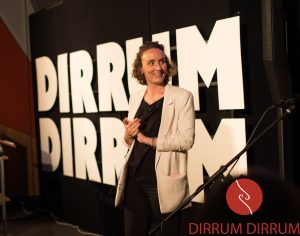 At the recent 2018 Dirrum Festival, Bridget was a keynote speaker and she accompanied her inspiring talk with a small display containing portraits and testimonies of the many people at Lesvos who have been part of OHF since its opening. Her aim was to “raise awareness of the atrocious situation on Lesvos, and the wider issue of migration around the world.” Her display contained the refugees’ messages, reminding us that “Every single human that walks in there has a story, has a past, has dreams for their future, has skills.” Bridget’s intention “to put faces to real stories, to humanise and share as closely as possible my experience on Lesvos” was emphatically realised.
At the recent 2018 Dirrum Festival, Bridget was a keynote speaker and she accompanied her inspiring talk with a small display containing portraits and testimonies of the many people at Lesvos who have been part of OHF since its opening. Her aim was to “raise awareness of the atrocious situation on Lesvos, and the wider issue of migration around the world.” Her display contained the refugees’ messages, reminding us that “Every single human that walks in there has a story, has a past, has dreams for their future, has skills.” Bridget’s intention “to put faces to real stories, to humanise and share as closely as possible my experience on Lesvos” was emphatically realised.
Surely these poignant and sometimes desperate stories should be heard by the wider Radford community, if not beyond? As Mahmud from Syria reminds us, “Few people know what it means to be a refugee? Actually, it does not really mean anything, it just names a person who is in the situation that he had to leave a place. Maybe you will be a refugee one day; anyone who has to leave his home involuntarily and is forced to go somewhere else – even within his own country – is called a refugee. Get to know us, in your country or here. Come here, talk to us, do not believe everything in the media because we are not dangerous. We are human beings.”
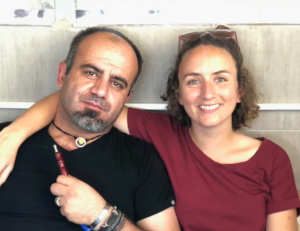 Bridget hopes to continue working with Médecins Sans Frontières in an international nursing position, “meaning they can send me anywhere in the world to nurse. I’m super excited about that! I’ll also have some down time in the next few months, catching up with friends and family and improving my French and Arabic.”
Bridget hopes to continue working with Médecins Sans Frontières in an international nursing position, “meaning they can send me anywhere in the world to nurse. I’m super excited about that! I’ll also have some down time in the next few months, catching up with friends and family and improving my French and Arabic.”
I suspect Bridget would prefer for Mahmud to have the final word in this article, as her story and those of the people she has so closely worked with over recent times, have seemed to powerfully and poignantly merge. “I wish that one day we could all live together,” he profoundly wishes. “Without any distinctions in terms of what we believe or what our religion is. Each of us has two hands, one head, two eyes, one heart – so tell me a difference that is worth getting into trouble over.”
Related Collegians
Bridget Chivers
CLASS OF 2009

